
Fair Coin Wallet: everything you need to know about this cryptocurrency
HolyTransaction recently added a Fair Coin wallet system on its multicurrency wallet, so we want to make sure you know everything you need about this digital currency.
Faircoin is a digital currency that strives to have low fees for its users, by implementing the Proof-of-Cooperation system by the end of 2017, Faircoin aims of becoming the most ecological and resilient cryptocurrency, providing a safe and fast method of payment all around the world.
Faircoin History
Faircoin history started back in 2014 when an anonymous developer created it. A few weeks later he/she abandoned the project, but Enric Duran retrieved the digital currecny with the help of Thomas König.
50 million faircoins were created and during the 6th and 8th of March they were distributed through an ‘airdrop’, or a massive gift of 1000 FAIR per hour to all those who registered.
In this way, Faircoin was distributed to promote equality over financial possibilities.
Faircoin as a social tool
By using Faircoin, Enric Duran built a new project called FairCoop, a free worldwide cooperative that organizes itself through the web, outside the limits and controls of the State, as the group aims at create an alternative global economy based on ethic and solidarity, reducing financial and social differences among people.
What really makes Faircoin different from other currencies is its specific use as a tool for FairCoop: this cryptocurrency acts as a FairCoop value’s reserve and redistribution of capital in socially and environmentally coherent projects.
Faircoin aims at overcoming the limitations of social currencies that are designed for local use and not interconnected as they are still related to fiduciary money and can suffer the same ups and downs.
Faircoin is one of the most ecological cryptocurrency because it doesn’t need big computational resources to generate new currencies.
Technical features
On a security level, Faircoin uses the blockchain: every 5 minutes there is a POW block and every 10 minutes a POS block. Thus, the two systems are combined together to provide the best result in each method and to avoid the complete control of the cryptocurrency from the Proof-of-Work.
In the next upgrade Faircoin 2: with Proof of Cooperation (POC), will go further, and the energy efficiency will be big, as no more coins will be created.
The first block contains 50 million coins mined, distributed initially to all the registered people, avoiding that only people with capital or mining resources could access them.
Fair Coin Wallet
For these reasons, we at HolyTransaction decided to include a Fair Coin wallet among our services.
We think that it is a digital currency with important goals and objectives, so we wanted to let you use FairCoin on our platform.
Just like Bitcoin and the other cryptocurrencies we already have, you can now:
- Send Faircoin to any address, even to addresses of other cryptocurrencies with instant conversion;
- Receive transactions;
- Exchange Faircoin with any supported coins;
- Make instant transactions between HT users;
- Get real time exchange rates on the website;
- Set OTP for an additional protection.
To know more about the new functions of our wallet and to manage your FairCoin Wallet, click here.
FairCoin and a fair economic system from Radi.ms on Vimeo.
Open your free digital wallet here to store your cryptocurrencies in a safe place.
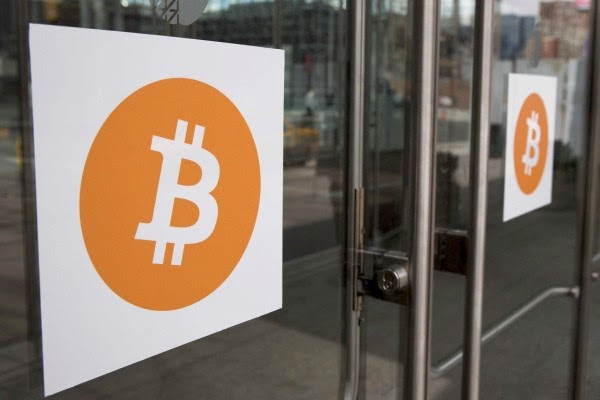
Glasgow digital currency: hope or reality?
Soon many cities around the world will issue their own digital currency.
According to Pavel Bains, in fact, within the next 10 years we’ll see the first city that have its own digital money and that is separates from the national fiat currency.
The Blockchain Role
This could be the right time for cities to exploit the blockchain and adop their own currency.
But for a new digital currency to be adopted quickly it needs the following characteristics, according to Bains (and we tent to agree with him):
- Cheap: fiat currencies are very expensive to produce, manage and distribute. Conversely, a digital currency deletes all those costs and can easily be distributed;
- Secure: as it is digital, cryptographic and based on pure algorithms, the chance of forgery or distrust is removed;
- Safe: a digital currency can be backed by other assets like gold, treasury bills, foreign exchange or equities, just like fiat money;
- Usable: cities such as Stockholm are going purely digital, so a digital city currency could be massively adopted quickly.
The newest Glasgow digital currency
Bains is pretty sure that the first city to adopt a digital currency will be Glasgow.
This because the Scottish city failed to benefit from the England pound and it came close to a recession back in 2015.
Also, Brexit opened a real issue for Scotland’s future with the potential loss of trades. Demand for Scotland’s products is already declining: in that year there was an 11% drop in exports compared to 2.7% for the UK and with Brexit the situation can only get worse.
But Glasgow has the right tools to adopt its own digital currency. These the major reasons according to Bains:
- It has the regional size and population: this could make the difference compared to smaller cities such as Dundee;
- It has a high record of academia, government and business working together. This unity could be great to manage a new-born digital currency
- Glasgow has a thriving financial base, moving to 74th in the world for financial centers and this demonstrates the city has a good base and an educated population to operationalize the new digital currency system.
Open your free digital wallet here to store your cryptocurrencies in a safe place.
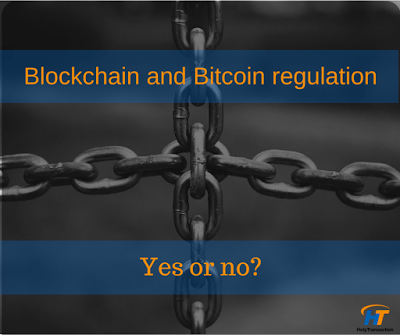
Polish Bitcoin regulators recognized it within the country
Polish Bitcoin regulators decided to recognize the digital currency within the country.
In fact, the country’s Central Statistical Office (GUS) revealed its decision to recognize the trading and mining of digital currencies as an official economic business in Poland.
This is the reason why from now on companies active in the Polish industry are be able to register themselves with the agency.
Businesses who are involved in cryptocurrency trade and production activities can now apply to obtain an official PKD 64.19.Z registration, the GUS explained in a press release.
This news highlights a significant step forward for industry workers in Poland where currently there isn’t an official regulation or legislation about neither bitcoin or other digital currencies.
Earlier this year the Polish Ministry of Finance released a few documents that expressed the status of legality for bitcoin and cryptocurrencies in general.
Also, in a statement published back in November, the finance ministry commented what follows:
“there is a lack of a general, legal definition of virtual currency in international, European and national law”.
This explains that digital currencies are subjected to income tax, even if they are not subject to any separate regulation according to the Polish legislation.
Polish ministry also commented:
“It should also be stressed here that their use in Poland is fully legal.”
Polish Bitcoin studies
To explore the legal and financial implications of the use of the Polish Bitcoin use, government of Poland has created a new group of blockchain and virtual currencies experts.
This Polish Bitcoin task force was established under the surveilance of the Polish Ministry of Digital Affairs, and according to thePolish government’s program titled “From Paper To Digital Poland“ that was written by the Cabinet back in June 2016.
This task force will be responsible to prepare analyses for use by other government agencies in their legislative work and the possible chance of a Polish Bitcoin and digital currencies regulation is one of its goals and interests.
Open your free digital wallet here to store your cryptocurrencies in a safe place.
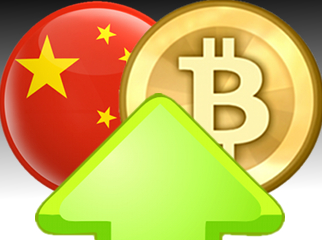
China Blockchain project for a new digital currency
People’s Bank of China (PBOC) is working on a China Blockchain project for a new digital currency.
According to an article published by Caixin yesterday, the People’s Bank of China completed a project on 15th December during which it tested how transactions could work by using a custom blockchain system.
The test was held together with major Chinese commercial banks including Industrial and Commercial Bank of China (ICBC), Bank of China and WeBank.
The official press release reports:
“The bank suggested the digital currency would not only reduce circulation costs but also increase transparency and curb money laundering and tax evasion.”
Also, the official report just released explained that the new China Blockchain digital currency might be connected to the Shanghai Commercial Paper Exchange to create a “national platform for bank bill transactions”.
Together with this new project the PBOC will also open a digital currency research institute for which it is looking for experts in big data, fintech, cryptography and distributed ledger technology.
The official report shared by the PBOC governor Zhou Xiaochuan in February, also explained that the central bank was considering the distributed ledger as one of a few different technologies that can be allow it to create a new form of digital cash.
Also, this project coincides with the current PBOC’s investigations into the most important bitcoin exchanges of the country, an operation that started in January and that has seen several startups doing a few changes to trading policies.
Read more news about the China Blockchain projects by clicking here.
Open your free digital wallet here to store your cryptocurrencies in a safe place.
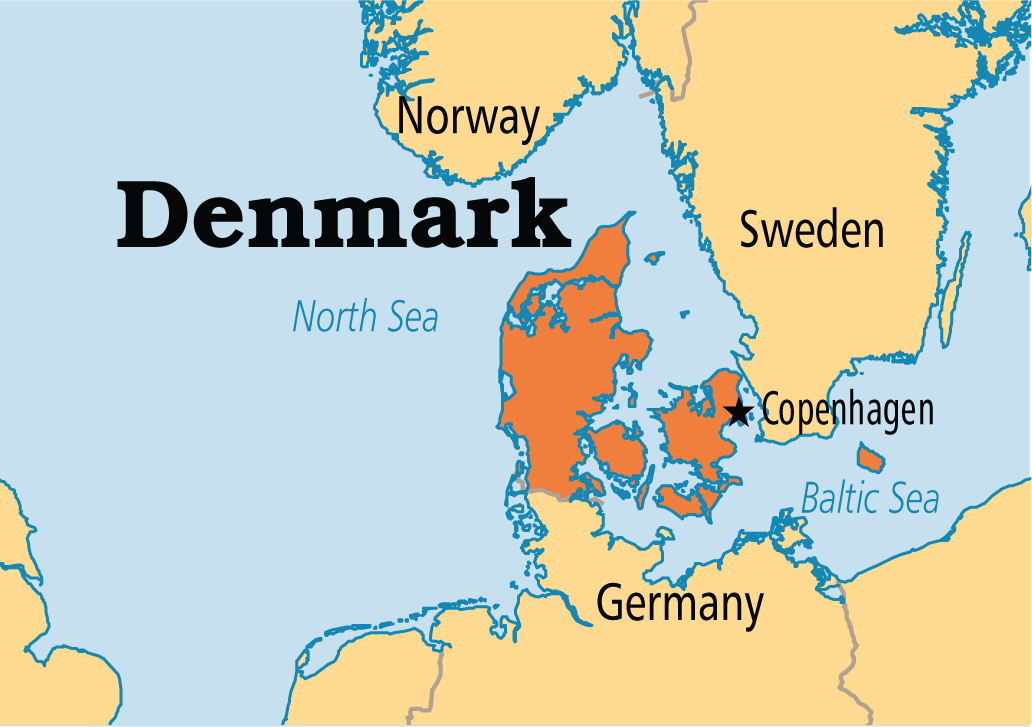
Denmark Bitcoin: Digitalizing National Currency
Today I want to talk about the Denmark Bitcoin position and regulation.
Denmark is a place where its citizens relie on cash less than most other European countries, so it is thinking about digitalizing its national currency.
To do so, the Danish central bank wants to release its own digital currency based on a blockchain and it will be called e-krone.
Governor of the Danish central bank, Lars Rohde. commented that the government doesn’t want to print its own fiat currency in the future.
So Rohde is looking for outsourcing the production of Danish krone and wants to replace it with its independent financial system based on the distributed ledger technology: the e-krone.
In an interview conducted by Bloomberg, Rohde explained that the Danish central bank effort is not related to the blockchain technology or alternative fintech technologies:
“We’re not preoccupied with the technology because we know that issue well. Cash and notes are not an alternative to electronic payments. We went beyond that many years ago.”
Also, the most important problem the central bank is worried about is the anonymity of the e-krone.
At the moment, the Danish bank believes that the e-krone will have a serial number embedded onto its Blockchain, so the government will be able to track the currency thanks to a transparent ledger.
However, another issue about the anonymity of a currency are the predictable complaints by the Danish citizens who expect to be provided with financial freedom and privacy.
“All money held by Danes will eventually end up in the central bank in the event of a financial crisis, and we will indirectly end up doing a bailout because we become a creditor to all the banks.”
But the distributed ledger tech is not applicable to the concept of the Danish central bank, as structurally it cannot be established for the central bank as network moderator.
To read more news about Denmark Bitcoin position, click here.
Open your free digital wallet here to store your cryptocurrencies in a safe place.

US Postal Service to create its Digital Currency
Australian Postal Service has already started to study Bitcoin
Postcoin
Multicurrency Wallet

Open your free digital wallet here to store your cryptocurrencies in a safe place.
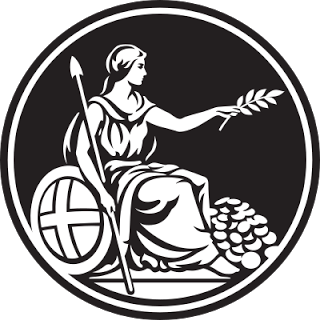
Bank of England will create its own cryptocurrency
The Bank of England announced its decision to create its own digital currency.
The cryptocurrency will be called RSCoin and it will use the blockchain, the decentralized ledger where bitcoin transactions are written and executed.
More Centralized Control
RSCoin has been developed by researchers at the University College of London.
How could this be positive?
Even if RSCoin is centralized and the opposite thing of Bitcoin, we could say that it is positive as it means that worldwide Central Banks are starting to give importance to cryptocurrencies.
However, RSCoin has its own benefits: for example no double spending, non-repudiable sealing, timed personal audits, universal audits and exposed inactivity.
Read the complete documentation
Univerisity College of London researches George Danezis and Sarah Meiklejohn published an abstract about RSCoin.
The full whitepaper is intitled “Centrally Banked Cryptocurrencies”.
The abstract begins from the bitcoin history, to explain everyone the impact of the digital currencies not only in the finance world:
“Recently, major financial institutions such as JPMorgan Chase and Nasdaq have announced plans to develop blockchain technologies. The potential impacts of cryptocurrencies have now been acknowledged even by government institutions: the European Central Bank anticipates their “impact on monetary policy and price stability”.
People’s Bank of China and its own cryptocurrency
In January 2016, the People’s Bank of China commented about its plans to launch its own digital currency and create a new financial infrastructure for the country.
The project started in 2014, when researches began to study cryptocurrencies related to business operations.
People’s Bank of China commented:
“The issuance of digital currency can reduce the significant costs of issuing and circulating traditional currencies, improve the convenience and transparency of economic transactions, reduce money laundering, tax evasion and other criminal acts, enhance the central bank’s control of over the money supply and currency circulation, better support economic and social development and aid in extending financial services to under-served populations”.
Open your free digital wallet here to store your cryptocurrencies in a safe place.